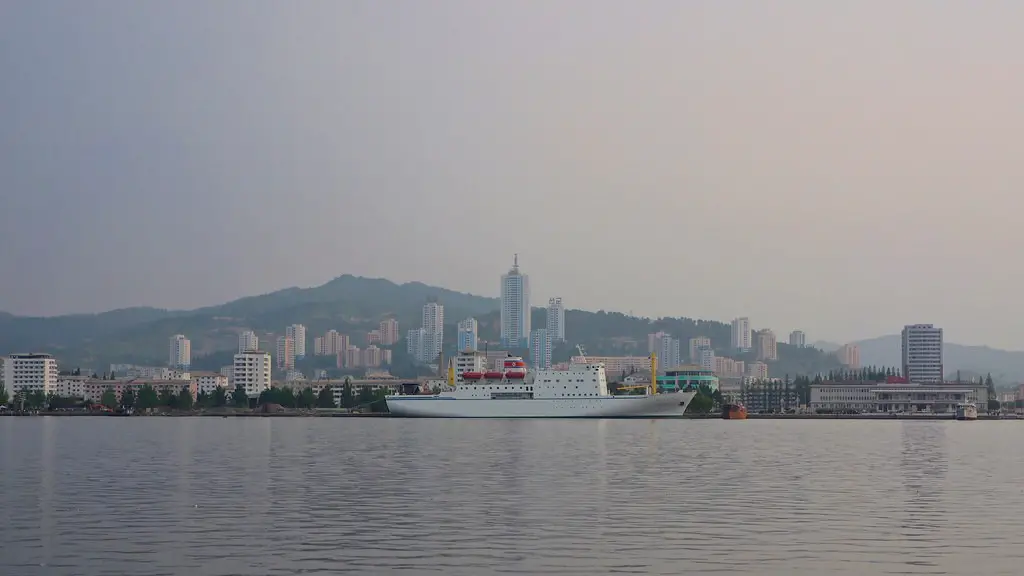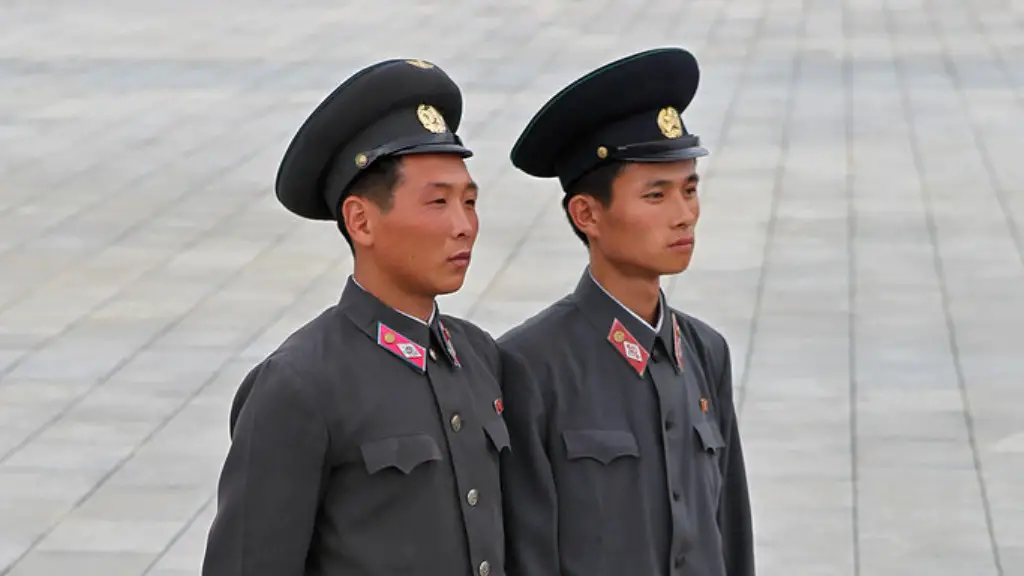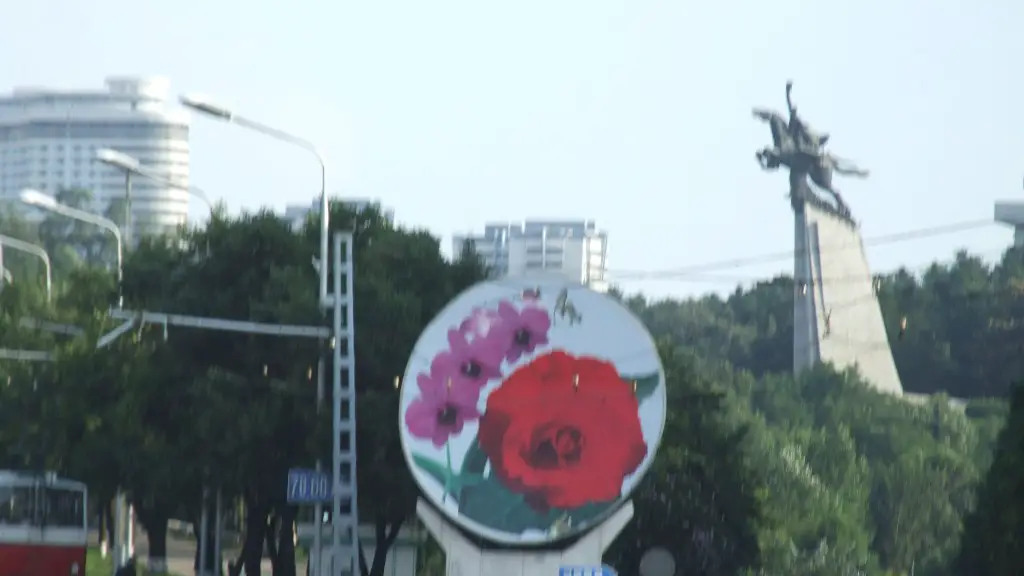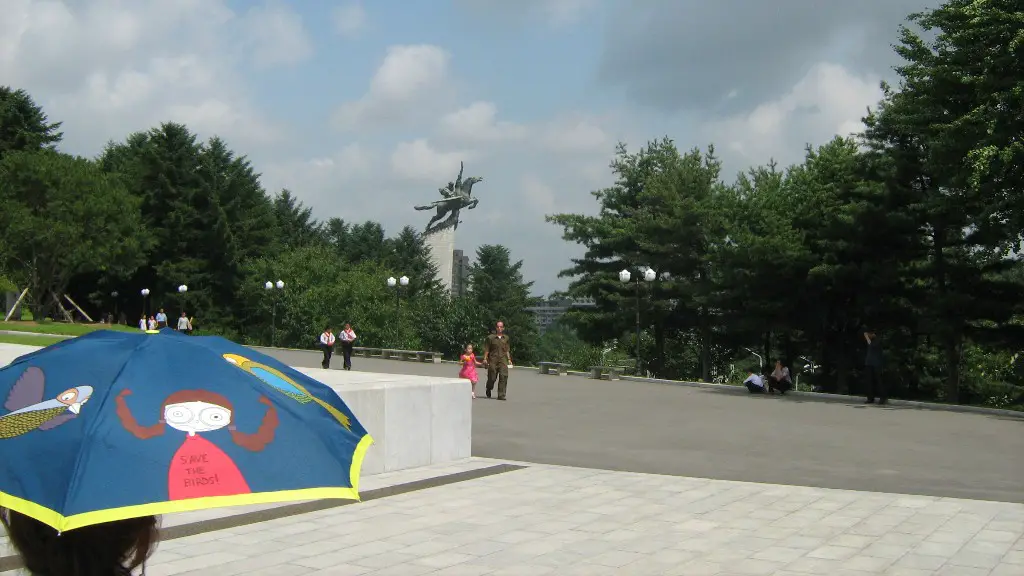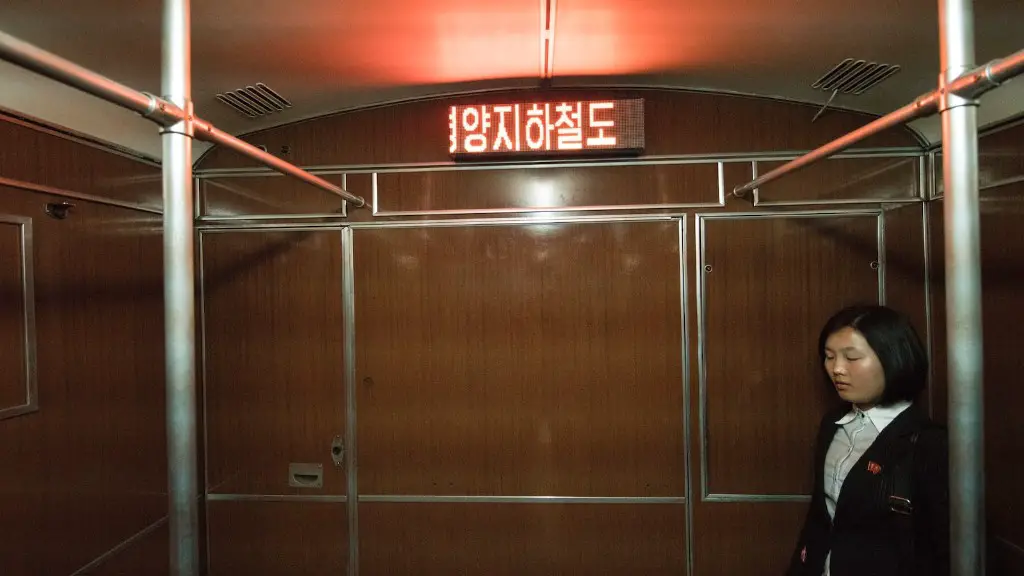The Government of the Democratic People’s Republic of Korea is the supreme organ of state power in North Korea. It consists of the Legislative Branch, the Judicial Branch, and the Executive Branch. The Constitution of North Korea, which was adopted in 1948, provides for a single-party system under the Workers’ Party of Korea (WPK). The national government is composed of the State Presidium, the Supreme People’s Assembly (the parliament), the Cabinet (the government), the State Affairs Commission (the supreme governing body), and the Central Military Commission. The SPA elects the president of North Korea, who serves as the head of state. The president is also the supreme commander of the armed forces and the chairman of the State Affairs Commission. The Cabinet, headed by the premier, is the chief administrative and executive organ of the state, responsible for carrying out the decisions of the SPA and the State Affairs Commission.
The government system in North Korea is a totalitarian dictatorship. The supreme leader of the country is Kim Jong-un, who wields absolute power over the government and the people. The government is highly centralized, with all power concentrated in the hands of the supreme leader. The country is divided into several regions, each of which is ruled by a provincial governor. The provincial governors are answerable to the supreme leader and are responsible for ensuring that the people in their region obey the law and follow the government’s policies.
What type of government is North Korea under?
The Democratic People’s Republic of Korea, or North Korea, is an authoritarian state that has been led by the Kim family for 70 years. Shortly after the death of Kim Jong Il in 2011, his son Kim Jong Un was named marshal of the DPRK and supreme commander of the Korean People’s Army. North Korea is a highly secretive and isolated country, and very little is known about its inner workings. However, what is known is that the country is highly militarized, and its citizens are indoctrinated from a young age to be loyal to the state and the Kim family. There have been numerous reports of human rights abuses in North Korea, and the country is considered to be one of the most repressive and oppressive in the world.
Since the end of economic aid from the Soviet Union after its dissolution in 1991, North Korea has continued to nominally uphold Communism, but has replaced it with a Juche-based state socialism. Juche, which prioritized self-reliance, was first proposed by North Korean leader Kim Il-Sung in the 1950s as a way to reduce dependence on the Soviet Union. However, the impractical ideological application of Stalinist policies in North Korea over years of economic slowdown in the 1980s and receding during the 1990s led to the collapse of the North Korean economy.
How is North Korea’s government structured
The government of North Korea is dominated by the ruling Workers’ Party of Korea (WPK). The WPK has been in power since North Korea’s inception in 1948. The Cabinet now has the right to supervise and control the Local People’s Committee (LPC) with regard to local economies and administration.
North Korea’s political system is based on the principle of centralization. The Constitution defines North Korea as “a dictatorship of people’s democracy” under the leadership of the Workers’ Party of Korea (WPK). The WPK is given legal supremacy over other political parties.
Is Korea a democratic country?
The Economist Intelligence Unit (EIU) has rated South Korea as a “full democracy” in its latest report. This is the first time that the country has been given this rating by the EIU. The EIU’s Democracy Index is based on five categories: electoral process and pluralism, civil liberties, the functioning of government, political participation, and political culture. South Korea scored an overall score of 8.38 out of 10, which is higher than the average score for Asia (7.52) and the global average (5.48). The EIU has praised South Korea for its “robust civil liberties, high level of political participation, and well-functioning government”. It has also noted that the country has “made progress in recent years in improving the fairness and inclusiveness of its electoral process”.
The Marxist–Leninist states, also known as the Communist states, are a group of countries that follow the political ideology of Marxism–Leninism. These states are governed by communist parties that adhere to Marxism–Leninism, and they follow a centrally planned economy. The Marxist–Leninist states were founded after the October Revolution in Russia in 1917, and they include the People’s Republic of China, the Republic of Cuba, and the Socialist Republic of Vietnam.
Communism and socialism are two different political and economic systems. The main difference is that under communism, most property and economic resources are owned and controlled by the state (rather than individual citizens); under socialism, all citizens share equally in economic resources as allocated by a democratically-elected government.
Both systems are based on the idea of a classless society, where all people are equal. However, the two systems have different ideas about how to achieve this equality. Communism requires a strong central government that controls all aspects of the economy and owns all property. Socialism allows for more democratic decision-making and private ownership of property, but with the goal of achieving equality for all.
As of today, the communist states in the world are China, Cuba, Laos, Vietnam, and North Korea (DPRK). All of these countries have communist governments, which means that a single party (usually the Communist Party) controls the government and the country’s policies. Communism is an economic and political system that is based on the shared ownership of resources and the distribution of goods based on need, rather thanprofit.
How is North Korea a dictatorship
North Korea is a country that is led by a totalitarian dictatorship with a cult of personality around the Kim family. The country does have elections, but they are not considered to be free and fair by independent observers.
In North Korea, the constitution guarantees the freedoms of speech and assembly, but in practice, other clauses take precedence. This means that citizens are expected to follow a socialist way of life. This can limit the freedom of expression for individuals in North Korea.
When did North Korea become a dictatorship?
The UN’s recognition of the Republic of Korea as the “only lawful government in Korea” was a major blow to North Korea, which was rapidly becoming a Communist state. This resolution effectively meant that the international community no longer recognized North Korea as a legitimate state, and it was increasingly isolated as a result.
There continue to be serious human rights issues in _____. Unlawful or arbitrary killings by the government remain a problem, as do forced disappearances by government authorities. There have also been reports of torture and cruel, inhuman, and degrading treatment and punishment by government officials. Prison conditions are also harsh and life-threatening, especially in political prison camps. arbitrary arrest and detention also remain a problem.
What crimes are punishable by death in North Korea
The death penalty is a legal punishment in North Korea. It is used for many offences such as grand theft, murder, rape, drug smuggling, treason, espionage, political dissidence, defection, piracy, consumption of media not approved by the government and proselytizing religious beliefs that contradict practiced Juche ideology. The methods of execution include shooting, hanging, and lethal injection. public executions are not uncommon, and have been used to intimidate political opponents and dissenters.
If the defectors are caught in China, they are repatriated back to North Korea, where rights groups say they often face harsh interrogations and years of punishment, or even death, in kwalliso prison camps (such as the Pukch’ang camp), or in kyohwaso reeducation camps (such as the Chungsan camp or Chongo-ri camp).
Is Korea politically stable?
The Political Stability Index is a measurement of how stable a country’s political system is. A high score indicates a strong and stable political system, while a low score indicates a weak and unstable political system. South Korea has an average Political Stability Index score of 04, which means that its political system is relatively stable. However, the country’s score has been on the decline in recent years, reaching a low of 011 in 2014. The latest score from 2021 is 066, which is still below the global average of -007.
The South Korean socialist movement is considered part of the country’s progressivism. The socialist movement in South Korea has been fighting for workers’ rights and social justice since the early 1900s. The movement has made significant progress in recent years, and its members are now some of the most respected leaders in the country.
Final Words
The North Korean government is an authoritarian regime that is led by the Workers’ Party of Korea. The state controls all aspects of society and the economy, and there is very little room for dissent or independent thought. The government follows a policy of ” Songun,” which prioritizes the military over all other areas of society. North Korea is one of the most isolated and closed-off countries in the world, and it is very difficult to get accurate information about what is happening inside the country.
The government system in North Korea is a single-party dictatorship under the absolute rule of the Kim dynasty. The country is isolated from the rest of the world and its people are subject to strict controls and constant surveillance. North Korea is a totalitarian state with no civil or political rights.
